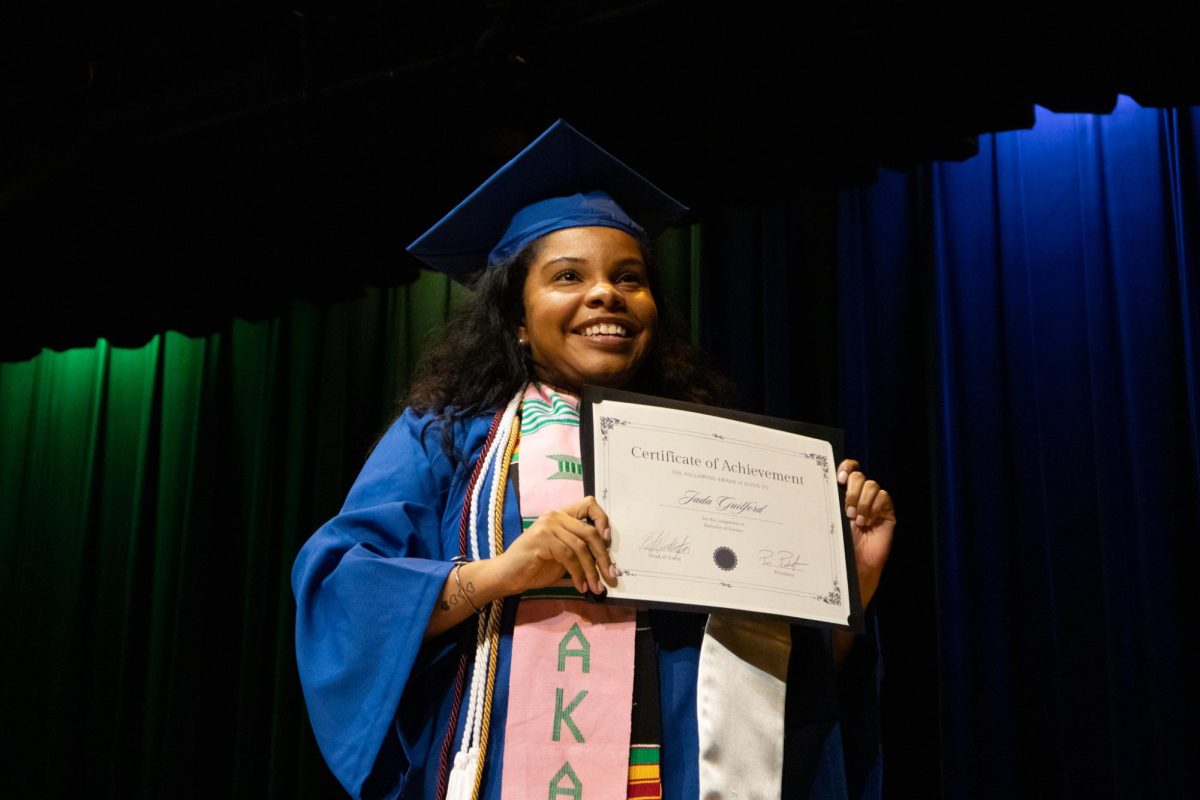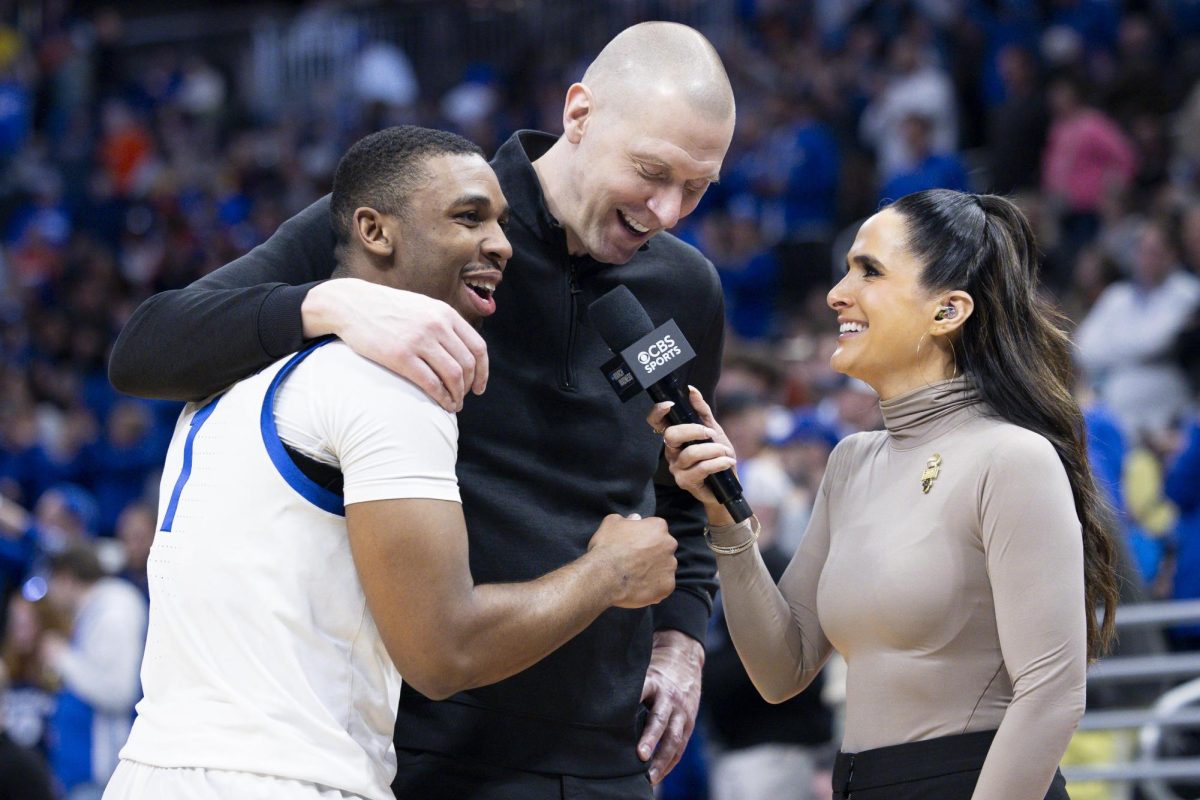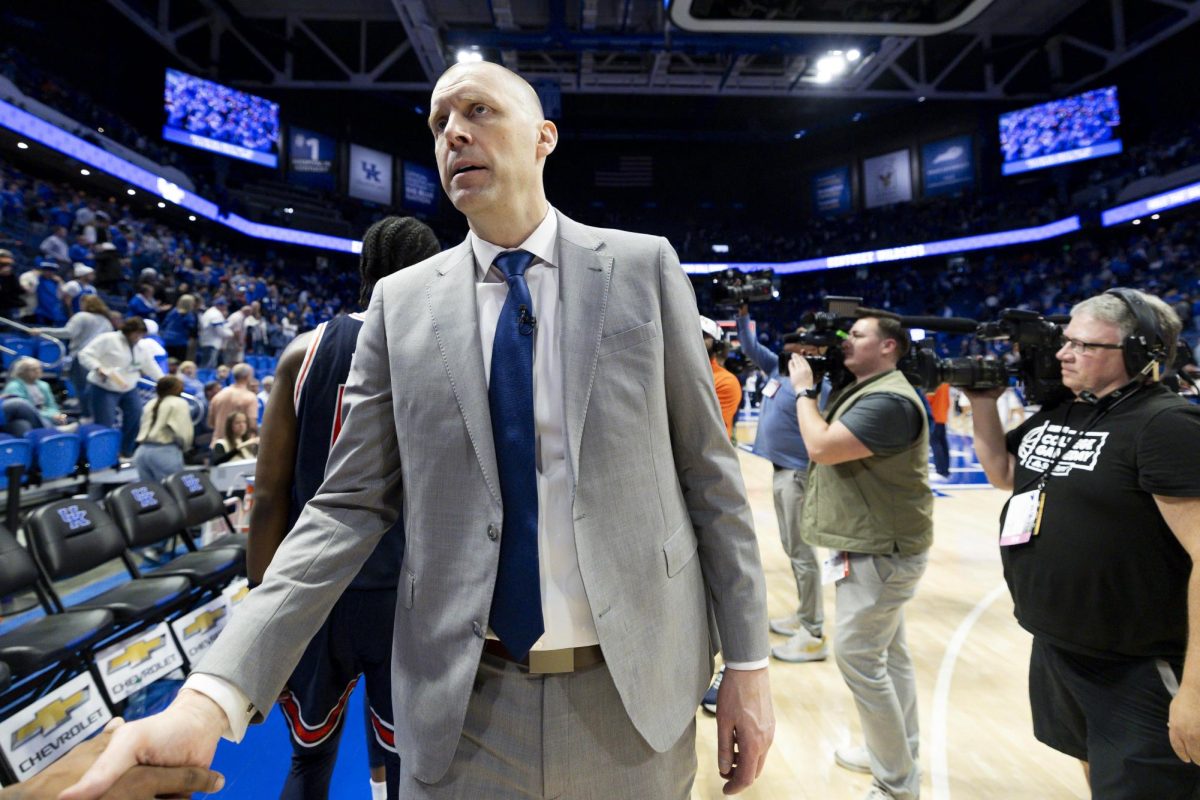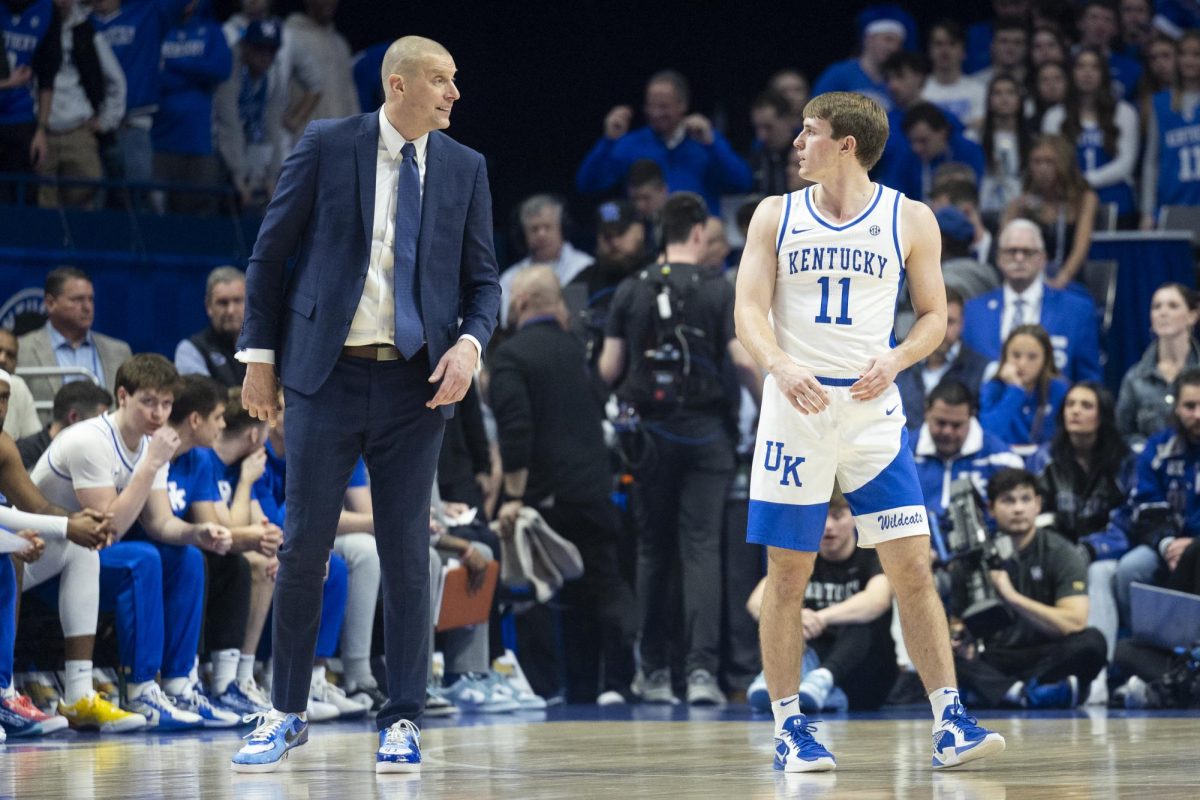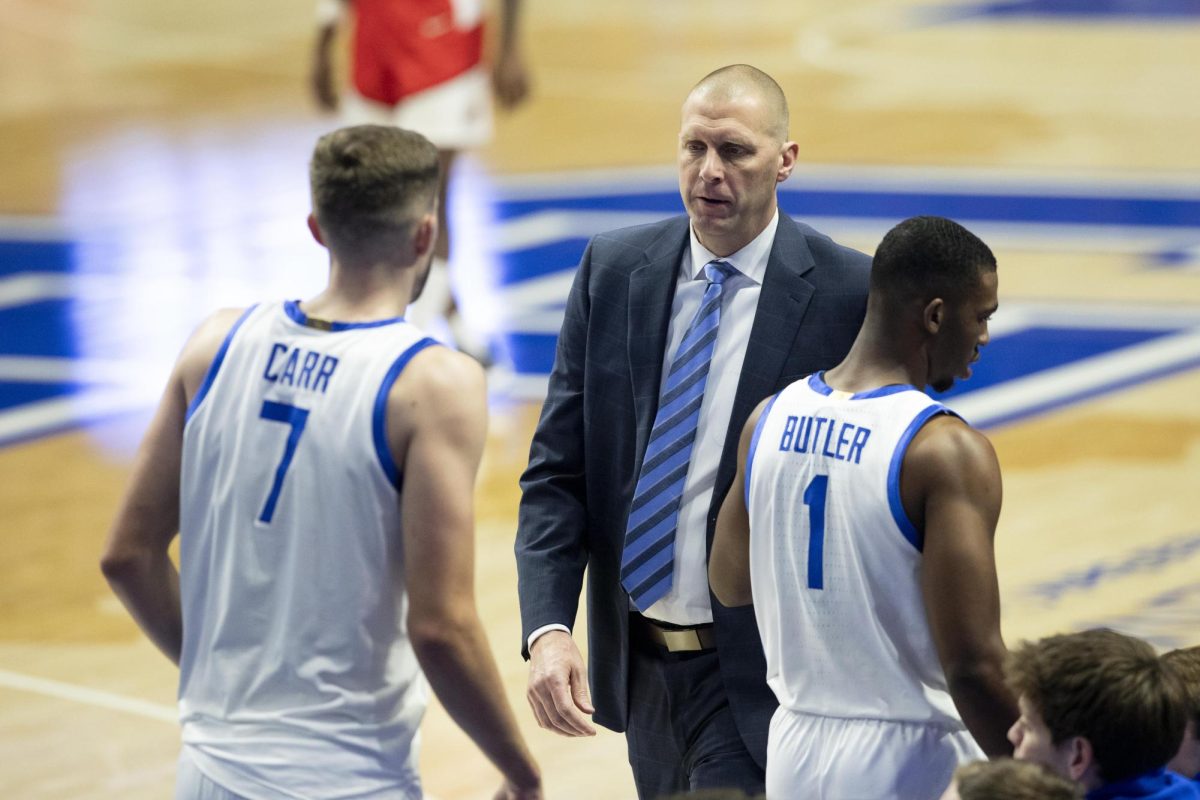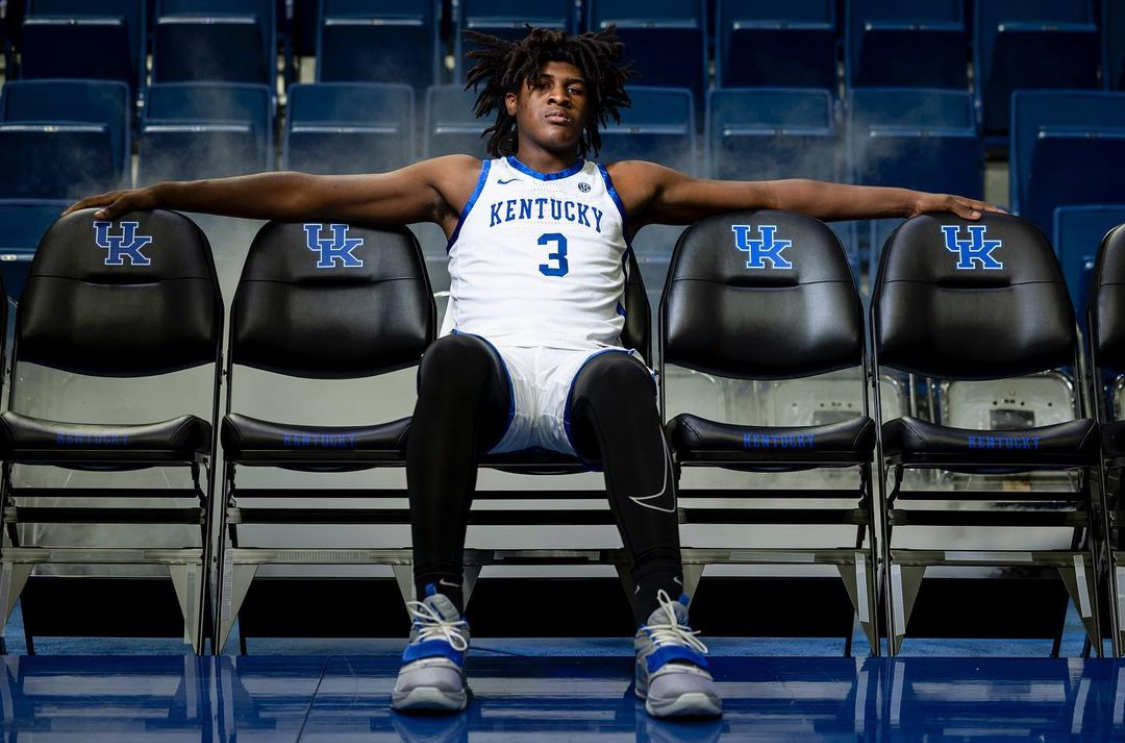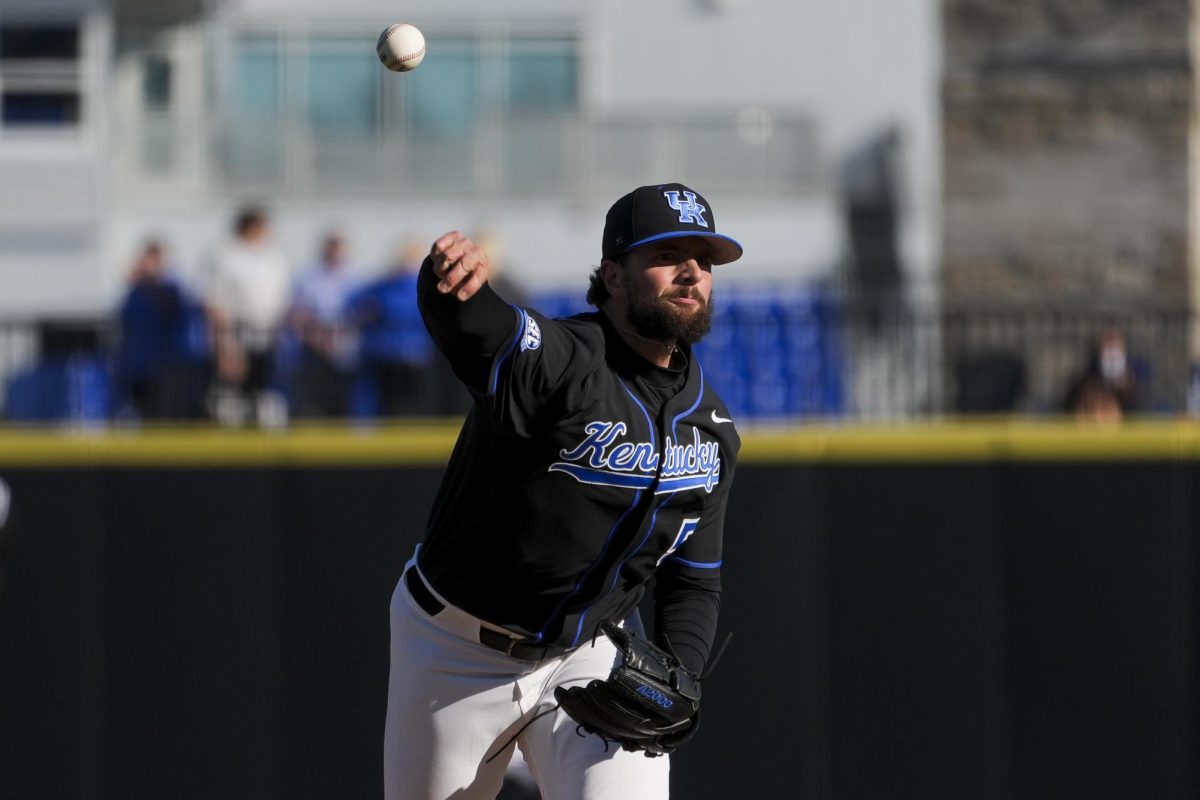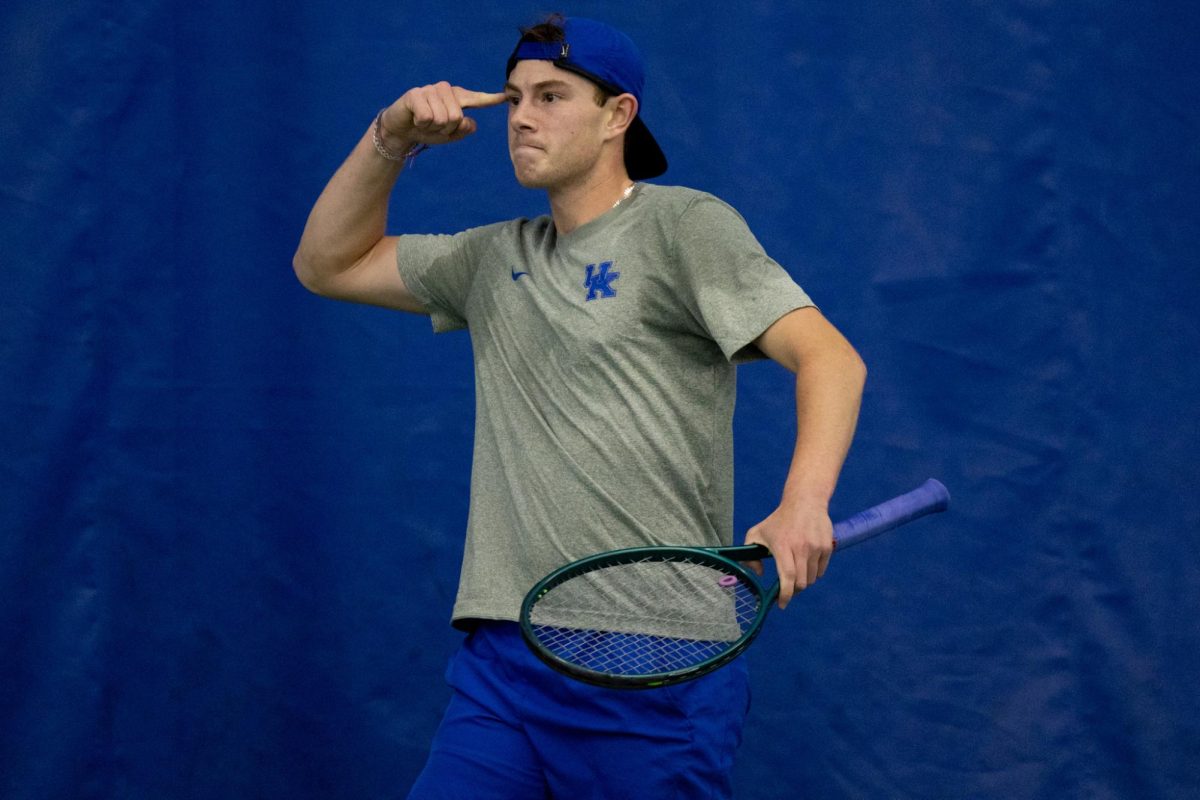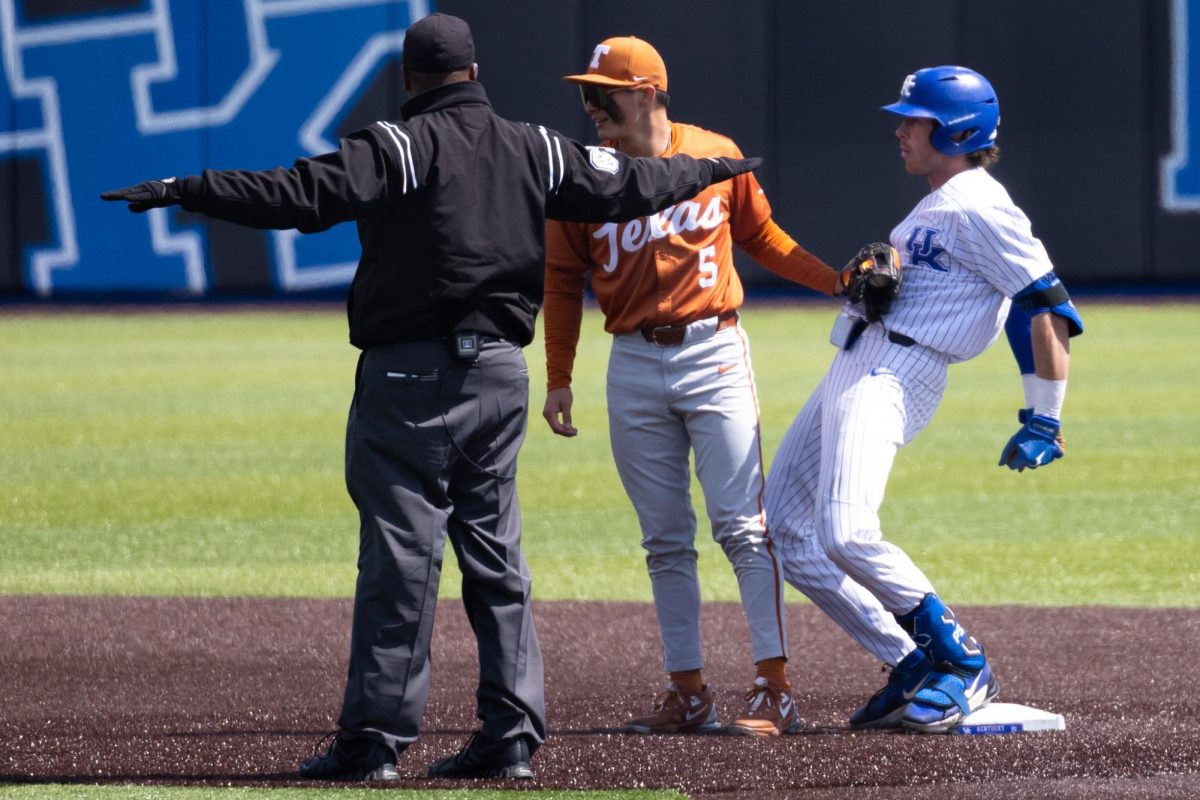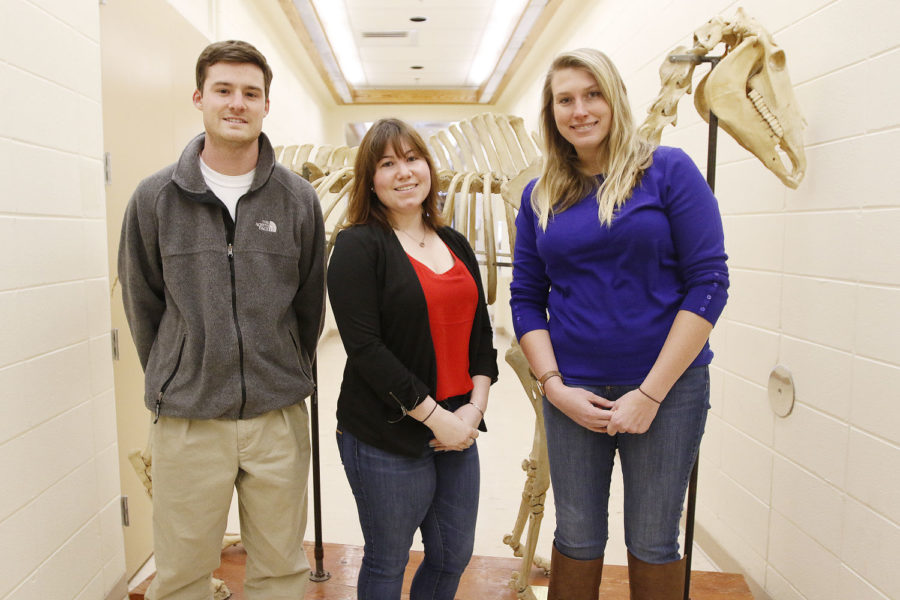3 students changing the horse industry
Ben Martin, left, Julia Fabiani, middle, and Stefanie Pagano, right, are working to build up Race Assured, their business venture to promote research that predicts when horses will sustain injuries.
February 14, 2016
Three UK students are in the business of prevention, and it could have a huge impact on the horse industry.
Their project, named Race Assured, uses blood samples to forecast potentially devastating injuries, like broken bones, about six to eight weeks before they happen.
When a horse’s skeletal system is under stress, certain markers in the blood begin to elevate. The test shows if these markers are elevated, giving owners enough time to prevent or lessen any damage.
Julia Fabiani, Stefanie Pagano and Ben Martin created Race Assured — a business venture that would market this research from the Gluck Equine Research Institute.
The team now has a recommendation to the Rice Business Plan Competition at Rice University, where they will compete with about 40 of the top programs in the world for portions of $1.5 million in cash and prizes divided between teams.
Even if a team does not take first place, they have the potential to grab the attention and support of more than 100 venture capitalists who judge the competition.
“Rice is going to literally put us on the map,” Pagano said.
Race Assured has garnered interest steadily through competitions and word of mouth — news of the project has reached as far as Dubai, where horse owners have already sent blood samples to the team for testing.
“If they weren’t excited, they’re getting excited,” Fabiani, an equine science senior, said about the horse industry.
Dr. David Horohov, director of the Gluck Equine Research Center and chair of the Department of Veterinary Science, has been working on the project for 10 years. Fabiani works at Gluck.
The team credits the university and the state for the support they have received and said the notoriety of an institute like Gluck Research Insitute has helped to make a name for Race Assured.
“I don’t think this would’ve happened at any other school,” Martin said.
Fabiani, Pagano and Kim Cecere, who graduated in December, participated in the Venture Capitalist Bootcamp last semester to better develop their business plan and to learn from Lexington business leaders.
“We’re just a couple of grad students and an undergrad,” said Pagano, a biomedical engineering graduate student.
The boot camp is a 10-week extracurricular program through the Von Allmen Center for Entrepreneurship. Of the 60 applicants, 12 were chosen for the boot camp, which involved weekly workshops about skills like market validation, forming a business model and community investor panels.
The team went on to win the Georgia Bowl, an entrepreneurship competition at Georgia Tech University. They beat out teams from Georgia Tech, University of Texas, University of Arkansas, University of Tennessee, and University of Manitoba in Canada.
With the win and upcoming competitions, the team has the momentum of the industry on their side.
“The support system is there, and we’ve fallen in love with the idea,” Pagano said. “We can’t let the people that have brought us this far down.”

